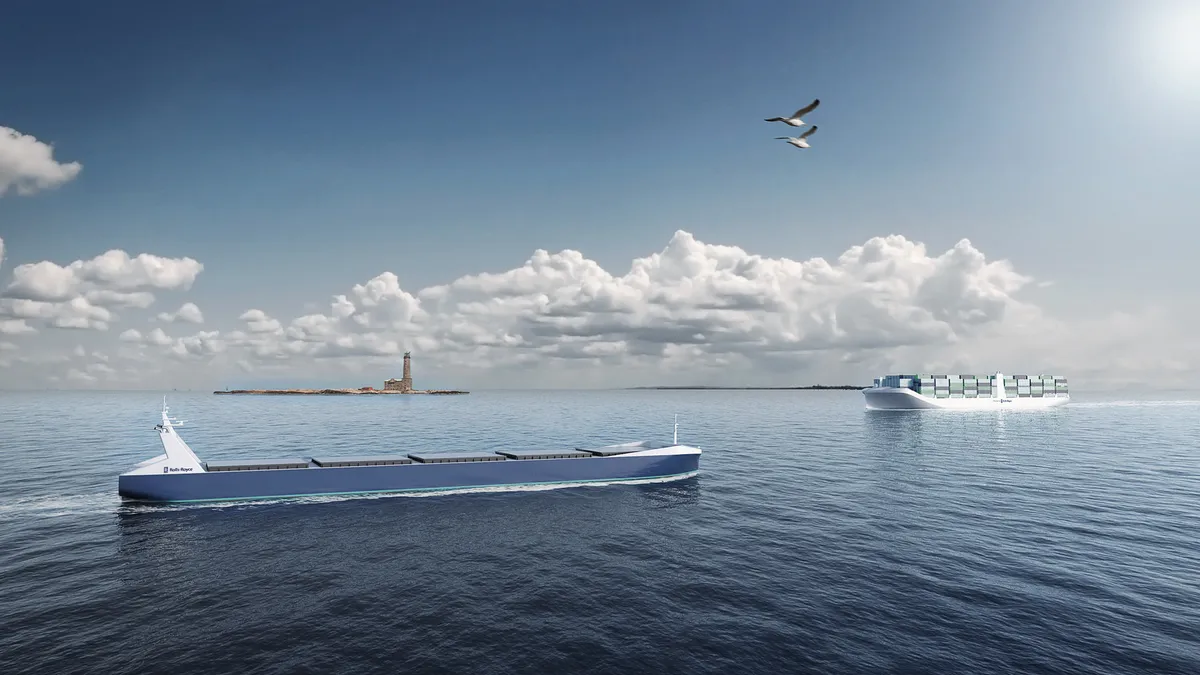Dive Brief:
- Rolls-Royce is partnering with Intel to conquer the immense amount of data required to make autonomous container ships a reality, according to a press release from Rolls-Royce.
- "With shipping, the data from these sensors are at greater scale than in other autonomous vehicle applications," reads the release, which is why Intel processors are being added to the ships and data centers on land.
- "This collaboration can help us to develop technology that supports ship owners in the automation of their navigation and operations, reducing the opportunity for human error and allowing crews to focus on more valuable tasks," said Kevin Daffey, director of engineering and technology and ship intelligence for Rolls-Royce, in a statement.
Dive Insight:
The data required to facilitate autonomous ships is greater in size and complexity than that necessary for autonomous road vehicles because of the increased variability of the environment.
Sensors need to sense farther ahead because of the slower maneuvering and stopping speeds. Cameras need to see above and underneath the water line, requiring more granularity and larger file sizes. And with weather a large factor, various types of radar and other sensors must be combined as well.
Rolls-Royce estimates that the total tonnage of data for an autonomous ship could be one terabyte of data per vessel, per day — the equivalent of 250 high definition feature-length films, according to the company.
Rolls-Royce has said that it aims to have autonomous ships in action by 2025, but before that can happen, global regulations need some work.














